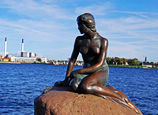
JERUSALEM, Jan. 23 (Xinhua) -- The Israeli political framework after Tuesday's elections shows Israelis have forsaken the traditional right/left parties and pinned their hope in smaller- scale center parties, led by the surprise of the elections, Yesh Atid.
So who are the winners and losers of the 2013 elections?
Incumbent Prime Minister Benjamin Netanyahu is both a winner and a loser. A winner, since he is the most likely candidate to form a new government and become, for the third time in his life, the Israeli prime minister.
However, Netanyahu lost a lot of his political power in the elections, which would make it all the more harder for "King Bibi", as he was termed by Time Magazine, to rule his "kingdom".
Many of Netanyahu's voters punished him, political analysts in Israel suggested -- as well as politician Shelly Yachimovich, for foregoing domestic issues and a socioeconomic agenda which were marked as a top concern among hundreds of thousands of Israeli middle-classers who took to the street amid the 2011 social justice protests.
When Netanyahu first announced the merger with Avigdor Lieberman's Israel Beytenu, early polls suggested the joint list would get more than 40 seats. In the last two months, polls have showed a downfall in Netanyahu's support base, up to the outcome of just 31 seats, 11 seats less than what the two parties had, combined, in the 18th Knesset.
"It is not a good outcome for Netanyahu," Roni Milo, former Likud Knesset (parliament) member and Tel Aviv mayor and currently a political commentator and businessman, told Xinhua Wednesday.
Milo, who is still active within the party lines, expressed his concerns in the past few months to Netanyahu as polls indicated the party's downward spiral.
"When the merger with Yisrael Beytenu occurred, I thought it was a good concept, having a cemented, big party that could be stable. In the past, the Likud party was joined from two parties -- the hawkish Herut party and the moderate liberals," he added.
"Now, however, this merger took Netanyahu from the center further to the right and that counteracted the momentum within Israelis, as the results show," Milo said.
While other parties showcased a variety of new candidates, the Likud party offered its voters a hawkish roster including, for instance, Moshe Feiglin at the no. 19 spot, who in the past challenged Netanyahu's leadership of the party. At the same breath, the party members voted out moderate and experienced politicians like Dan Meridor and Benny Begin.
Local news outlets reported Wednesday that many Likud members are disgruntled by the results and are pointing fingers specifically at the party's drowsy campaign.
"There was arrogance and indifference in the party," a senior member of the Likud told the Ynet news website Wednesday.
"Netanyahu has to get the message through. The public is tired of the type of politics he's bringing to the table. Someone will have to pay the price for our downfall," he said.
The surprise of the elections and one of the stars, without a doubt, is former TV personality and secular icon Yair Lapid, a political newcomer.

















 Time to stop appalling food waste on dining table. "Rich" is not defined by "waste".
Time to stop appalling food waste on dining table. "Rich" is not defined by "waste".


![]()
